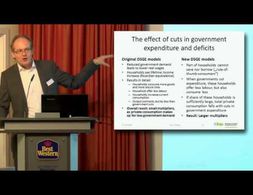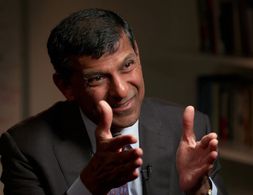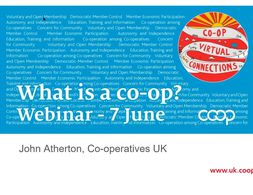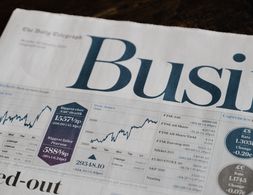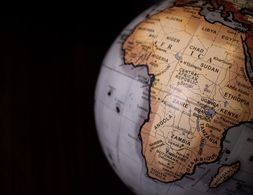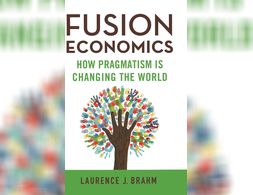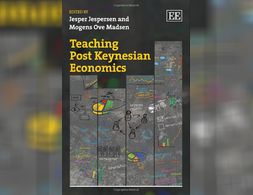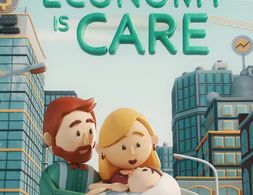✕
256 results
Silvia Federici outlines the content of her book „Caliban and the Witch - Women, the Body and Primitive Accumulation“. Departing from a critique of the Marxist blindspot on reproductive labour, Federici aims at researching the historical process by which the exploitation of women and the construction of the unproductive housewife has been established. Federici points to the transition from the feudal to the capitalist mode of production and explains how the gender specific prosecution (witch hunt) was linked to necessity of control over bodies and the sexuality in the great transformation. Federici also presents arguments why this research is highly relevant for the analysis of women's situation in current capitalism.
The podcast exposes the concept and principles of co-operatives and the three main types of co-operatives: the consumer, credit and farmers buying and selling co-operatives. Furthermore, the history of the co-operative movement is presented. The authors draw the line from co-operatives to "degrowth" by arguing that these organisations discourage profit maximisation due to their ownership structure, their social purpose and their primacy of people over capital. The value of the members' co-operative share does not increase with the growth of a co-operative and it can not be used for speculation. Finally, the authors give examples for current co-operatives which empower (local) communities fostering social justice and environmentalism.
First historical instances of colonialism such as the crusades are revisited. Then a lengthy account of the colonial experience of the Spanish Kingdom in South America and of the British Empire in India is given. The Indian case is illustrated with large amounts of archival materials from a colonial administrator. There the workings of the colonial bureaucracy and law and its (positive) achievements as well as the ignorance and arrogance of the external rulers are demonstrated. After narrating the Indian independence to some depth some recent colonial wars (Algeria, Vietnam, Congo, Angola) are briefly examined. In the end, the impact of colonialism on current, i.e. 1970s, (economic) international relations is discussed. The general tenor is that colonialism is a dysfunctional system. Still, agency is mostly placed with the empire rather than with the ruled.
The first keynote speech was given by Sebastian Dullien, current spokesperson of FMM and who is one of the most well-known German economists in applied European economics and a very active contributor to the pluralist debate. Sebastian discusses the strategy of “running with the pack” by using orthodox methods to disseminate pluralist economics and politics. Referring to diverse examples Sebastian addresses the pros and cons of “running with the pack” and proposes alternative approaches to achieve more pluralism in economics.
In this radio program, the anthropologist David Graeber, explores the history of debt in (currently) 12 episodes. The program is based on his book Debt: The First 5000 Years. First, Graeber asks the questions of how debt and money are characterized, which meaning and roles they had in different historic episodes and how they were interrelated. In the most recent episodes, Graeber elaborates on how debt shaped society. He argues that debt had a different moral status in different times of history, one session analyses the current financial and economic crisis and the role of credit in this historical context.
Prof. Robert Guttmann looks at the current transformation of the international world order through the lenses of global money and finance.
In this video, Rajan Raghuram highlights ‘A hereditary Meritocracy’. He identifies the “limitations” with the current economic systems of democracy and markets.
Mariana Mazzucato explains how we lost sight of what value means and why we need to rethink our current financial systems so capitalism can be steered toward a bold, innovative and sustainable future that works for all of us.
In her short contribution, the author questions how the value of goods and services is shaped in current neoclassical teaching. She criticizes the principle of pricing based on marginal income. She discusses what can be called wealth generating, what kind of wealth we need and points out a lack of a value theory.
Prof. Yanis Varoufakis talks in this introductory lecture about the future of our economy and the current state of economics with special regard to pluralism in economics.
Exploring Economics Dossier on the economic fallout of the COVID-19 pandemic and the structural crisis of globalization. COVID-19 encounters a structural crisis of globalization and the economic system that drives it, with an uncertain outcome. We asked economists worldwide to share with us their analysis of current events, long-term perspectives and political responses. The dossier will be continuously expanded.
In this podcast, Professor Darrick Hamilton critically discusses how current neoliberal economic models uphold a systemically racially unjust structure of economies.
In this interview, the political activist, author and lecturer Dr. Vandana Shiva explains the linkage between ecology, feminism and economics along the lines of current effects and implications of the Corona-Crisis in India and around the world.
This video explains what a co-operative is, discussing the different types, their history and purposes, before moving on to discuss the current state of the co-operative movement.
Beyond Growth is a collection of educational materials offering a reflection on growth. It was created as a joint project of the associations Fairbindung e. V. and Konzeptwerk Neue Ökonomie, both based in Germany. The page provides learning materials and methods to stimulate thinking about the conditions of our current economy as well as possible alternatives.
This panel is about discussing the international development discipline from a critical perspective, exploring how the current practice entangles with Eurocentric/neo-colonial thoughts and how can we move beyond them.
The historian Nicholas Mulder talks about the Western sanctions against Russia in the context of the Ukraine Crisis. He explains that the current sanctions are unprecedented in terms of size, speed and scope, expected consequences as well as potential drawbacks and problems.
This video provides key insights into the functioning of Western sanctions imposed on Russia due to the current Ukrainian conflict.
"Energy issues have always been important in international relations, but in recent years may have become even more important than in the past due to the widespread awareness of existing limits to energy sources and negative climate impacts. The course discusses global trends in energy consumption and production, various available scenarios for potential developments in the coming decades, the availability of oil reserves and the evolution of the oil industry. It then discusses natural gas and highlights the differences between oil and gas. It will also discuss renewable energy sources, nuclear energy and EU energy policy.
The course aims at providing students whose main interest is in international relations a background on energy resources, technology and economic realities to allow them to correctly interpret the political impact of current developments. It also aims at providing students, who already have a technical background in energy science or engineering, with the broad global view of energy issues that will allow them to better understand the social, economic and political impact of their technical knowledge."
This course will cover recent contributions in economic history that, using geospatial data from anthropological maps, colonial archives and secondary sources, will explore current economic and development challenges by drawing parallels between the past and present.
As the current economic crisis spreads around the globe questions are being asked about what king of capitalist or post-capitalist economy will follow. There is increasing talk of the need for stringent economic regulation, the need to temper greed and individualism, to make the economy work for human and social development.
The current international financial system has created a huge gap between the wealthy and the rest. Grounded and straightforward in his approach, Brahm calls for a turn away from economic systems dangerously steeped in ideology and stymied by politics, outlining a new global consensus based on pragmatism, common sense, and grass-roots realities.
The current global financial system may not withstand the next global financial crisis. In order to promote the resilience and stability of our global financial system against future shocks and crises, a fundamental reconceptualisation of financial regulation is necessary. This reconceptualisation must begin with a deep understanding of how today's financial markets, regulatory initiatives and laws operate and interact at the global level.
Microeconomics in Context lays out the principles of microeconomics in a manner that is thorough, up to date, and relevant to students. Like its counterpart, Macroeconomics in Context, the book is uniquely attuned to economic realities. The "in Context" books offer affordability, accessible presentation, and engaging coverage of current policy issues from economic inequality and global climate change to taxes.
As a response to ongoing economic, social and environmental crises, many private actors have enlarged their definition of 'value' to include environmental and social elements. Such practices, however, appear incompatible with the current epistemological structure of academic financial discourse.
Economics After the Crisis is an introductory economics textbook, covering key topics in micro and macro economics. However, this book differs from other introductory economics textbooks in the perspective it takes, and it incorporates issues that are presently underserved by existing textbooks on the market. This book offers an introduction to economics that takes into account criticisms of the orthodox approach, and which acknowledges the role that this largely Western approach has played in the current global financial and economic crisis.
This book contends that post Keynesian economics has its own methodological and didactic basis, and its realistic analysis is much-needed in the current economic and financial crisis.
The blog post by Marc Lavoie contrasts what he perceives as the two main interpretations of the current inflationary tendencies (the 'excessive demand inflation' story and the 'profit inflation' story) and contrasts them with a third interpretation. This interpretation acknowledes rising profits but argues in favor of a different mechanism that centers on changes in the relative composition of costs.
A short film that questions the current state of the economy with thought-provoking sequences and takes a look into the past how the present understanding of the economy came to be.
Economics for Emancipation (E4E) is a seven-module introductory curriculum with interactive and participatory workshops. It offers a deep critical dive into the current political economic system, exploration of alternative economic systems, and dynamic tools to dream and build the economy that centers care, relationship, and liberation.
Planet Money and The Indicator aim to explain current economic events in an easy, fun and accessible manner.
After long-time negligence, the Global South and the North-South divide are back on the agenda of development economics again. This book is a neat, accessible introduction into the topic, covering both the current situation and potential remedies from different points of view.
We use cookies on our website. Click on Accept to help us to make Exploring Economics constantly better!




